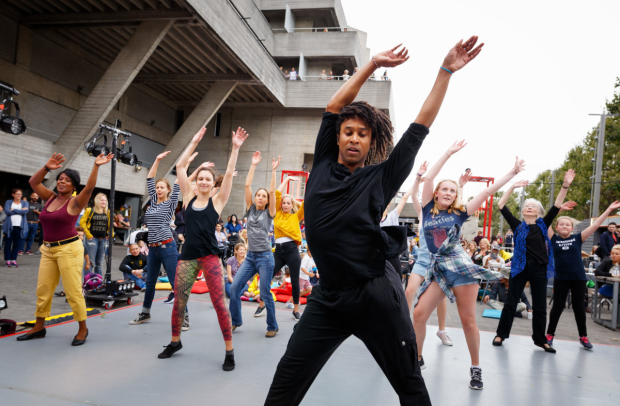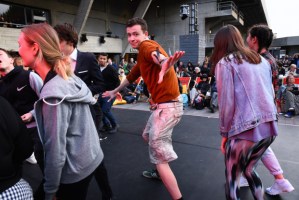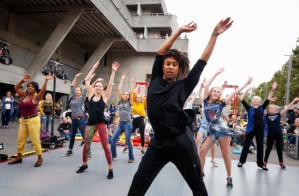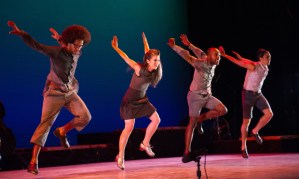How do we stop the marginalisation of arts subjects in schools?
Sarah Crompton recently chaired the Rambert Live panel and discussed the future of dance

© James Bellorini
Hold the bus! I have simultaneously solved the political problems of the country and the marginalisation of arts subjects within our school curriculum.
Well, in fact, I haven't personally but Claire Somerville head of Children and Young People's Dance at One Dance UK came up with the perfect idea. We'd been talking as part of a discussion organised by Rambert about the future of dance in schools. To wind up, I asked my panel what would be the single thing they'd introduce to improve the provision of dance and indeed all performing arts subjects.
The suggestions were various. Arlene Phillips, legendary choreographer, said she'd make every school have ten minutes of dance before the start of lessons each day. Young choreographer James Cousins said he would appoint a specialist dance teacher to every school. Sandra Allan, head of curriculum for the creative arts at AQA, said she'd empower the senior leadership team in every school and inspire them to introduce more performing arts. Ray Oudkerk, assistant principal of peforming arts at the BRIT school, called for a rethinking of the whole way we view the educational curriculum.
But Claire's suggestion topped them all. She said, quite simply, that she'd make sure the Prime Minister of the UK had a dance background. Job done. All our problems sorted. With a prime minister who could dance, we'd not only have a fully rounded person, with enhanced cognitive and movement skills in charge of dealing with all the major issues of the day, but we'd also have a powerful advocate for the arts who would recognise their importance in education and in life. Imagine that!
Growing up, Arlene Phillips battled to fulfill her own artistic dreams
In the real world, things aren't quite as optimistic if you care about the cultural vitality of our country.
But our discussion, which was live streamed as part of Rambert Revealed, a day of live events shared over the internet by the contemporary dance company, attempted to fly the flag for the arts. You can watch it here.
As chair, I felt it covered a lot of lively ground and managed to be surprisingly positive considering how bleak the situation for the arts in schools is. As the panel points out, provision is barely mentioned in the National Curriculum, and the restrictions of EBAC and the attitude to what is academic makes children studying drama or dance or art feel these subjects are somehow second best.
As far as I am concerned, understanding and trying out all the arts, should never be regarded as anything other than central to education, but it takes a brave soul to make that case and many head teachers feel beleaguered as they try to provide the most rounded and inclusive schooling for the children in their care. They need more support from parents – and from politicians who have to stop thinking of the arts as some kind of optional add-on and need to understand that the creative industries are a vital part of the future.
As James Cousins pointed out, robots can do most jobs but they can't dance, they can't act and they probably can't come up with the kind of brilliant ground-breaking ideas that the arts encourage.
Everyone who cares about the arts needs to start fighting
At the start of our talk, Arlene Phillips recalled her own determination to dance when growing up in Manchester in a family with little money or access to arts training. They scraped together enough to send her to ballet class, but when every other little girl wore pink shoes, her ballet shoes were bright green, because those were the colour on sale in the shop. Yet she put them on and battled to fulfill her own artistic dreams. With the success that we all know about.
It seems to me that everyone who cares about the arts – and cares about passing a cultural understanding to our children – needs to pull on their metaphorical green dancing shoes and start fighting. We might not be able to vote for a PM with a dance background – but we can at least insist that those in charge don't trample on the dreams and ambitions of those who happen to be better dancers or actors than mathematicians.















